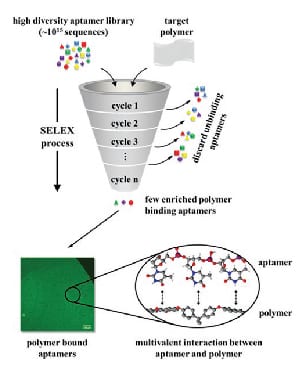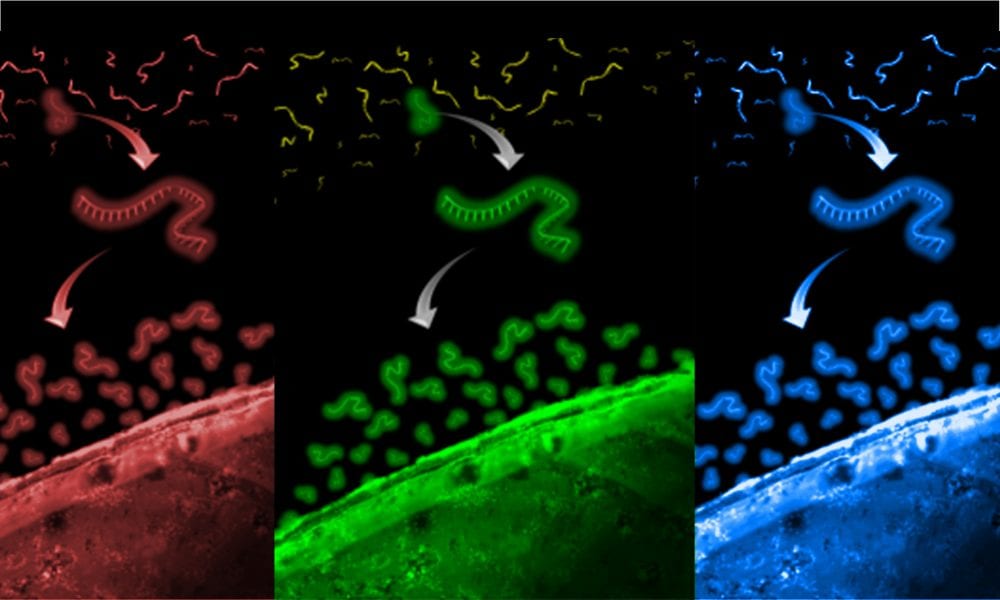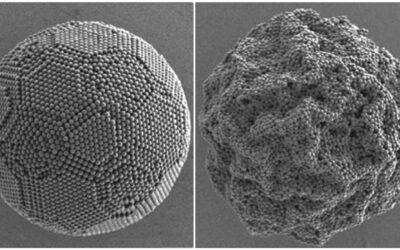Aptamers are short pieces of synthetic single stranded DNA or RNA, which are capable of binding like a selective molecular adhesive to a corresponding target molecule. The aptamer binding process is comparable to a key-lock pair and aptamers are often applied as therapeutics, diagnostics or biosensors.
 The group of Prof. Lendlein searched for polymer binding aptamers, which are able to selectively bind to specific material surfaces. The challenge was the targeted isolation of the strongest binding aptamers from a starting molecule library with billions of different potential ligands. To achieve this goal, they used systematic evolution of ligands by exponential enrichment (SELEX), which is also refered to as in vitro evolution. This method allowed them to find DNA sequences which bind strongly to polymeric surfaces like poly(etherimide), poly(styrene) or poly[ethylene-co-(vinyl acetate)]. Only a small selection from these countless aptamers was able to adhere strongly to the polymer surface and with them they reached an area wide binding.
The group of Prof. Lendlein searched for polymer binding aptamers, which are able to selectively bind to specific material surfaces. The challenge was the targeted isolation of the strongest binding aptamers from a starting molecule library with billions of different potential ligands. To achieve this goal, they used systematic evolution of ligands by exponential enrichment (SELEX), which is also refered to as in vitro evolution. This method allowed them to find DNA sequences which bind strongly to polymeric surfaces like poly(etherimide), poly(styrene) or poly[ethylene-co-(vinyl acetate)]. Only a small selection from these countless aptamers was able to adhere strongly to the polymer surface and with them they reached an area wide binding.
Utilization of polymer surface binding aptamers opens up a wide range of potential applications at the interface between biological and artificial systems, such as improving cell growth in combination with further cell binding molecules on implant surfaces, thereby facilitating regeneration and healing after implantation.














